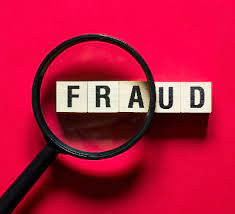Securities fraud can lead to significant financial losses and erode investor trust. It can involve misleading statements, insider trading, or manipulation schemes. Recognizing warning signs early is crucial for protecting investments and making informed decisions. Red flags include exaggerated claims of guaranteed returns and inconsistent financial reporting. Understanding these indicators is essential for confidently and cautiously navigating the complex economic landscape.
Investing in financial markets is a powerful way to build wealth, but it also comes with responsibility. As financial markets become more complex, scammers attempt to defraud investors, causing thousands to lose money, trust, and peace of mind. Identifying warning signs can help prevent financial losses and ensure sound economic growth.
If you ever encounter investments or individuals that raise suspicion, taking swift action—including consulting a Securities fraud attorney in New York—can be crucial for recouping funds and protecting your financial future. By understanding fraudsters’ methods, you equip yourself with the knowledge to avoid their traps and confidently navigate today’s investment landscape.
Unrealistic Returns
Investment opportunities that boast exceedingly high, almost guaranteed returns—often at little or no risk—should always be approached with great skepticism. All legitimate investments carry some risk, and there is no such thing as a “risk-free” investment with high yields. Scammers often prey on the desire for quick, easy profit, using promises of outsized gains to distract from the lack of transparency.
This is a glaring red flag if you are told an investment will double your money within a year or that losses are impossible. As the U.S. Securities and Exchange Commission (SEC) noted, such promises are a classic indicator of fraudulent activity.
For your protection, never question the legitimacy of any investment’s projected returns. Ensure that verified data backs all claims and that you fully understand the true risks involved. Remember: if it seems too good to be true, it probably is.
High-Pressure Sales Tactics
Fraudulent investment promoters often rely on aggressive, high-pressure sales tactics to push people into hasty decisions without allowing enough time for reflection or research. They might say the opportunity is “exclusive,” available only to loyal customers, or claim there are limited spots, hoping you will be swept up in a sense of urgency.
The true aim behind these tactics is to prevent you from reviewing the offer carefully, seeking independent advice, or comparing options. Ethical investment professionals will always give you time to consider an offer and encourage you to ask questions.
According to the Financial Industry Regulatory Authority (FINRA), feeling pressured or uneasy about how much you’re being pushed into making a quick decision is a clear warning sign to pause and reevaluate. Rushed investments rarely end well.
Unregistered Investments
One of the most time-tested ways fraudsters operate is by offering unregistered securities to the public. Registration with regulatory bodies such as the SEC is intended to help investors access critical information about the company, its finances, and the individuals involved.
Without registration, necessary transparency guardrails are removed, leaving you vulnerable to manipulation. Many investment scams hinge on unregistered securities being difficult to trace or verify, making it much easier for a fraudster to disappear with your funds.
To counter this, always verify an investment’s registration with the appropriate regulator and confirm that the entity and salesperson are fully licensed.
Unlicensed Sellers
A fundamental rule in the securities industry is that only properly licensed and registered professionals are authorized to offer investment advice or sell securities products. Those without proper credentials are not held to regulatory standards and are much more likely to put your money at risk.
Fraudsters often use impressive-sounding titles, professional-looking websites, or fake credentials to appear qualified. Still, a simple search using tools like FINRA’s BrokerCheck can help you verify any broker or investment adviser’s licensure status and track record.
Always take this extra step—protecting your finances is well worth it. If you have any doubts, do not hesitate to walk away. Your security and peace of mind are far more important than any single investment opportunity.
Difficulty Withdrawing Funds
If you ever have trouble getting your money back from an investment, consider this a major sign of potential fraud. There may be unjustified delays, odd restrictions, or additional requirements not disclosed upfront.
Genuine investment providers deliver clear, written information about withdrawal processes and will never arbitrarily prevent you from accessing your funds. Scam operators, conversely, may use stalling tactics, make excuses, or disappear.
If the withdrawal of your own money becomes complicated or obstructed, investigate further and consider seeking legal assistance. The SEC warns that restricted access to invested funds often signals a scheme already in progress, and immediate action may be required to protect what remains of your investment.
Protecting Yourself from Securities Fraud
The best defense against securities fraud is proactive vigilance. Before making any investment, conduct comprehensive research into the business and the individuals promoting it. Dive into company history, check for legal or regulatory actions, and insist on full disclosure of risks and costs.
Rely on reputable databases to confirm sellers’ credentials, registration, and licensure, such as FINRA’s BrokerCheck or state securities boards. Be suspicious of unsolicited pitches, especially those offering quick returns or employing urgent tactics.
Make it a routine to stay informed on the latest scam alerts through trusted resources like the SEC, FINRA, and your state’s securities regulator. Your strongest protection is educating yourself and staying cautious in the face of pressure or promises. The SEC’s comprehensive checklist is an invaluable resource during your investment journey.
Reporting Suspicious Activity
If you suspect that you have encountered—or have even fallen victim to—securities fraud, acting quickly is crucial. Not only can you help protect others by alerting regulators, but you may also improve your chances of recovering lost funds.
You can file a report with the SEC easily using their online forms. In particularly complex or high-value cases, promptly consulting a knowledgeable Securities fraud attorney can help you understand your options, deal with regulatory bodies, and potentially recover your investments.
Taking immediate steps when something seems wrong may prevent fraudsters from harming others. Report fraud to the SEC and consider taking professional guidance to pursue justice and protect your interests.
Related Post:
- Pedrovazpaulo Business Consultant – Modern Business Solutions!
- Anthony Skaria – America’s Youngest Real Estate Powerhouse!
- Wepbound – Features, Benefits, and the Future of Work!
- Leah Gettens – Transforming Businesses with Lean Six Sigma!
- White Oak Impact Fund – Investing with Purpose and Profit in Mind


